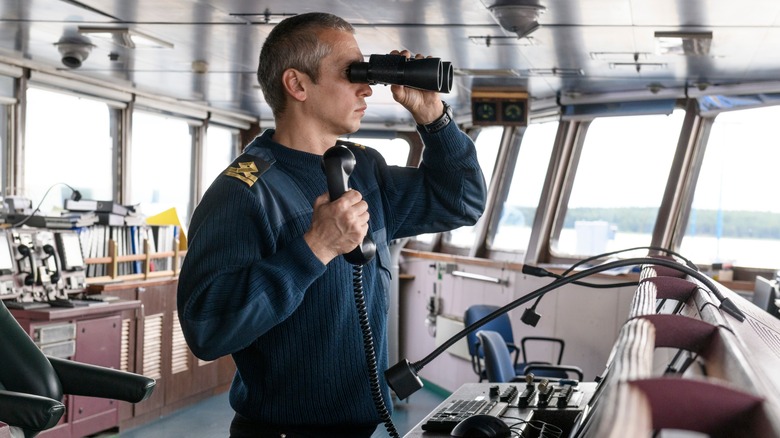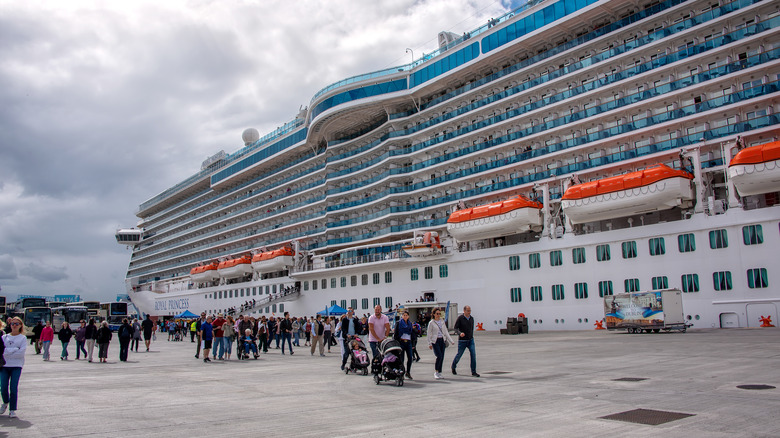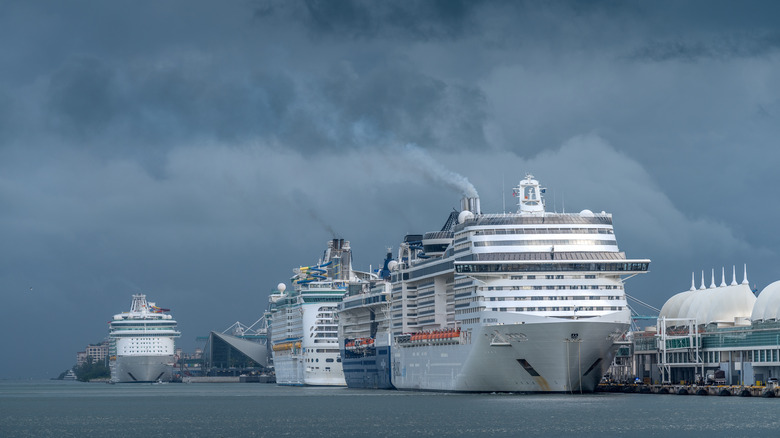Travel Guides Cruises
Caitlyn Knuth
There’s certainly a lot to look forward to when you’re booking a cruise. From the onboard buffets and entertainment to features like the pools, casinos, restaurants, and seminars to enjoy, there’s plenty to keep you occupied starting on day one of your trip. Not to mention the many scenic and exciting ports of call included on the itinerary.
For all of the thrills that go along with stepping on board a cruise ship, hitting the high seas in style also means having to contend with the weather during certain times of the year. While places like the Caribbean are popular cruising destinations in the fall when prices are particularly appealing, this is also the time of year when the risk of hurricanes is at its peak. It’s not uncommon for cruisers to wonder what exactly would happen if they were on a cruise ship during a hurricane.
As The Points Guy notes, Atlantic Ocean hurricanes can develop at any time, but the majority occur between June and November, according to the National Hurricane Center. The good news is that you’ll likely be able to stay ahead of the hurricane even if it occurs while you’re on board. Cruise companies track weather carefully using satellites, maps, and predictive storm models through the National Oceanic and Atmospheric Administration. That means the cruise company and your captain alike have eyes on a hurricane’s presumed path before and during your cruise.
Cruise ships are designed to avoid and withstand storms

Alexey Seafarer/Shutterstock
If a hurricane hits unexpectedly, passengers can enjoy some peace of mind from knowing that cruise ships are designed to be able to withstand detrimental conditions. Cruise ships are built to outrun severe storms if necessary. Unidata estimates the average speed of a hurricane at 15 to 20 mph. Cruise Critic reports the average speed of a cruise ship at around 23 mph with the ability to reach speeds of nearly 35 mph. This allows for quick redirection to a safer path when needed.
When you imagine a hurricane, it’s easy to assume its reach is vast. While the devastation can certainly be serious, in reality, hurricanes are relatively condensed. Even a hurricane that strikes through the Bahamas or the Caribbean might only affect a part of the region. This gives cruise lines more options when it comes to redirecting a ship in real time.
If you’re on a cruise ship during a hurricane, your captain will be charged with informing passengers of a new plan. The guest services desk is also a prime communication center for passengers in this scenario. Cruise lines and captains may agree to push back a port of call by a day or exchange one port for another depending on where the hurricane is forecasted to strike. Regional itineraries could be flip-flopped as well; for example, an eastern Caribbean cruise itinerary may be traded out for a western Caribbean itinerary to avoid the storm’s path.
Safety dictates itinerary adjustments

Ruth Peterkin/Getty Images
If safety remains compromised with an itinerary adjustment or region swap, more drastic measures could be required. Severe storms may cause a cruise line to ultimately drop a port of call from an itinerary altogether. While this is disappointing, passenger safety remains the priority during a cruise. It’s also possible a hurricane ends up on track to pass by a ship’s home port during the time the ship is scheduled to return. In this situation, the itinerary could be extended or cut short by a few days to allow the storm to pass, according to The Points Guy. In the most severe circumstances, it might be deemed necessary for a cruise ship to return to a different port than the one from which it departed.
While these scenarios are manageable for passengers, a new port or altered itinerary does affect travel plans that were initially in place following a cruise. Flights will need to be rebooked and hotel reservations adjusted if you weren’t flying out the same day you were scheduled to return to port. There could also be added expenses incurred if you parked your vehicle at the departure port parking lot.
With all this in mind, it’s important to note that cruise ship passengers generally aren’t compensated for itinerary changes due to weather. Hurricanes are unpredictable by nature and the cruise line will choose the best option for keeping passengers safe. If you’re planning to cruise during hurricane season, having travel insurance in place is definitely worth your while.

